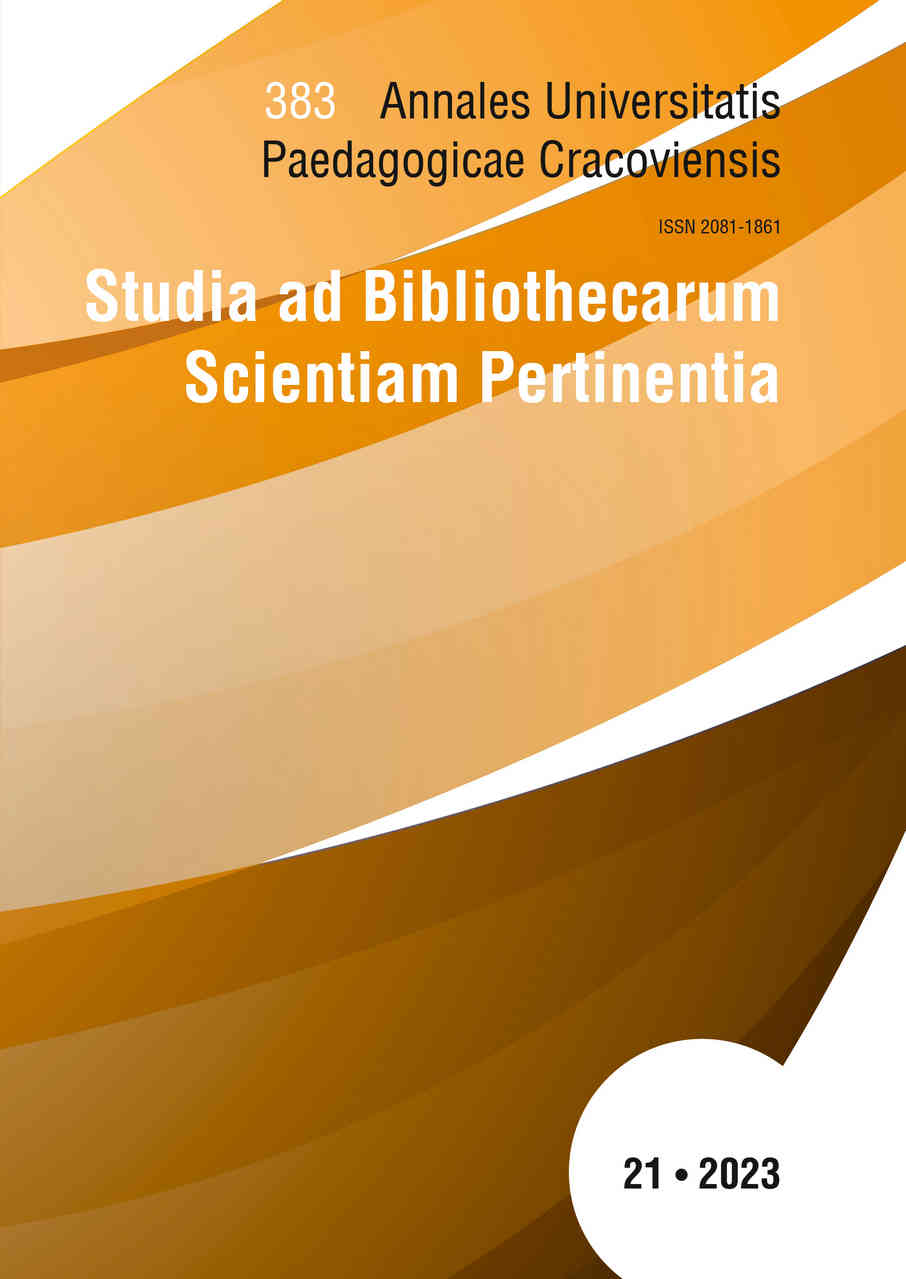Biblioteka w ziemiańskim dworze w Królestwie Polskim w pierwszej połowie XIX wieku w świetle inwentarza Wincentego Wydżgi
A library in a landed gentry’s manor in the Kingdom of Poland in the first half of the 19th century in the light of Wincenty Wydżga’s inventory
Author(s): Anna DymmelSubject(s): Cultural history, Museology & Heritage Studies, Archiving, Preservation, Social history, 19th Century
Published by: Wydawnictwo Uniwersytetu Komisji Edukacji Narodowej w Krakowie
Keywords: landowner libraries; inventories; Kingdom of Poland; 19thc; Wincenty Wydżga;
Summary/Abstract: The purpose of this article is to present the book collection of Wincenty Wydżga, an example of a landed gentry library of the first half of the 19th century. The source basis was a notarial inventory drawn up in 1854, found in the Files of Ignacy Rzeszotarski, a notary in Lublin. The book collection, consisting of 584 works in 1219 volumes, was one of the more significant home libraries known from Lublin’s notarial records from the period 1808–1863. More than half of the collection consisted of Polish-language prints, in addition to French, German, and, less frequently, Latin and Italian. Above all, attention to stocking the library with current items is evident. The bulk of the books were published in the nineteenth century, with particularly numerous titles published after 1815 and in the following decades until the owner’s death. Only the single printings were from the last decades of the eighteenth century. As a result of the analysis, it was determined that the thematic content of the library was as follows: general studies (3.9%), from the social sciences (20.04%), the humanities, especially history (16.94%), in addition, geographical studies (11.73%), mathematical and natural sciences (4.65%), applied sciences (14.89%). Attention is drawn to the many agricultural studies (11.18%) devoted to new methods of cultivation and breeding. In addition, the domestic book collection included indispensable religious, medical, technical prints. Fiction (14.15%), both classics and fashionable novels, in addition to grammars and dictionaries, was an important addition. The book collection, shaped by more general trends and cultural patterns, as well as presumably, the individual needs of the owner, is an interesting example of a library that can, by virtue of its universal character, fulfill numerous functions: cognitive, utilitarian, entertainment, aesthetic, among others. Certainly, the case in question, both because of the significant size of the book collection and its varied contents, is an interesting example of the book collection of a landowner who appreciates the value of books as a medium of communication.
Journal: Annales Universitatis Cracoviensis. Studia ad Bibliothecarum Scientiam Pertinentia
- Issue Year: 2023
- Issue No: 21
- Page Range: 95-113
- Page Count: 19
- Language: Polish

